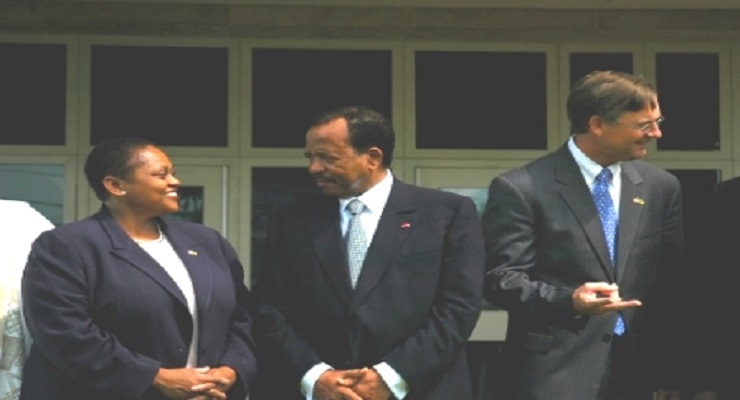
2018 is a year for general elections in Cameroon. The coming elections include a presidential election that is more than likely to be a complete mirage, a staged-managed invention to shore up the international reputation of the longtime incumbent, Paul Biya, who has ruled with an iron fist since 1982. His victory in the rigged contest is not in doubt.
This is arguably as a result of the nature of Cameroon’s undemocratic politics, the corruption of the electoral machine, voter apathy and pushing through with elections despite deep political crisis in the English-speaking regions of the mostly French-speaking west African country.
In March 2018, Senatorial elections were held in which President Paul Biya’s Cameroon People Democratic Movement (CPDM) party won 63 out of 70 elected seats. Ni John Fru Ndi’s chief opposition party, the Social Democratic Front (SDF) obtained only 7 seats, down from 14. The rest of the 30 seats were filled by Presidential appointment as is required by what prevails as law in the country.
Then, on 13 June 2018, Biya wrote a letter to the Senate President and to the National Assembly President asking them to consult their various bureaus on his proposed postponement of the legislative and municipal elections by one year starting from October 2018.
Biya argued that organising the municipal and legislative elections together with the presidential election would be too cumbersome. The Government has also posited that the insecurity in the Anglophone regions of the country and in the Far North Region warranted the postponement.
Considering that the Parliament, in which the CPDM has the majority, rarely ever opposes Biya’s bills, it is obvious that Parliament eventually did as Biya has “proposed”.
Since the return of multi-party politics in Cameroon in the early 1990s, the CPDM has used all sorts of new strategies to consolidate its grip over the executive, legislative and judiciary. The gradual decline in opposition numbers in Parliament has effectively reinforced one-party dominance.
The atomised opposition has thus been unable to unite to constitute a single front to challenge Biya. Even if it did, it would only pose very minimal threat to Biya’s continued rule since the regime’s control of the election administration and its repression of political freedoms ensures the status quo. Finding no other way forward, a group of “opposition” parties, however headed by doubtful opposition figures, has coalesced to support the candidacy of Paul Biya. One begins to wonder if these are political parties or mere associations supporting Biya.
Added to the move by these associations to throw their support to Biya, greatly weakening the opposition, Biya has once again secured a de facto win even before voting begins. Growing voter apathy and the worsening armed separatist conflict in the Anglophone regions (regions concomitant with the former British Southern Cameroons) will go a long way to give Biya an easy landslide victory in elections that are now clearly staged managed by the CPDM-run Elections Cameroon (ELECAM).
Biya and his CPDM have tightened their grip over all aspects of social, economic and political life. His cronies have also been working hard to eliminate any traces of local government so that any form of protest in the upcoming Presidential elections will be inconsequential. The army will be unleashed to repress any such attempts in the most violent of ways. Even if there are no votes at all in the English-speaking regions, it will not change the fact that Biya will secure his win.
However, all is not lost. Like for all African States, true democracy remains the primary prescription for Cameroon’s political woes. Only time stands in its way.
David Anderson says
President Paul is happy in his Swiss hotel.. where’s the problem? (sarcasm alert there)
We can see a similar situation across the bay in Equatorial Guinea.
Good article.David
David Anderson says
Interesting piece. As you kind of imply – more worrying than Paul B’s tenure is what comes after it?
With a little luck he’ll be found floating at the bottom of the hotel pool in Switzerland. But like with the criminal Nguema next door in Equatorial Guinea, the central question has to be: What’s next?
With both of these “leader” – criminals…. so little has been said about how the best way to proceed after their (imminent, both are very old) demise.
Thx for your article.
D